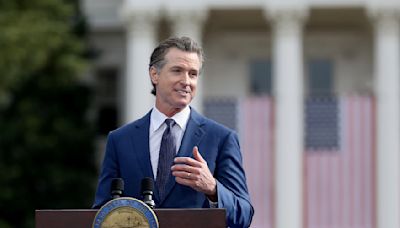Search results
- Dictionaryacting/ˈaktɪŋ/
noun
- 1. the art or occupation of performing fictional roles in plays, films, or television: "she studied acting in New York" Similar
adjective
- 1. temporarily doing the duties of another person: "the acting supervisor"
Powered by Oxford Dictionaries
People also ask
What does acting mean?
What is the purpose of acting?
Is acting a work or a labor?
What is the difference between acting and communication?
Acting is an activity in which a story is told by means of its enactment by an actor who adopts a character. Learn about the origins, skills, methods, and applications of acting in various media and contexts.
Learn the meaning of acting as a noun and an adjective in English, with synonyms, related words and phrases, and translations. Find out how to use acting in sentences and expressions about cinema, theatre, and business.
Dec 1, 2023 · Acting is communication: Acting is the practice of communicating messages about emotions, ideas, artistic expression, and plot. Through these signs and the process of semiotics, the actor...
Learn the noun and adjective meanings of acting, as well as its synonyms, examples, and word history. Acting can refer to the art of stage performance, a temporary rank or position, or a play with directions for actors.
- Overview
- Theories of traditions
- GeneratedCaptionsTabForHeroSec
acting, the performing art in which movement, gesture, and intonation are used to realize a fictional character for the stage, for motion pictures, or for television.
(Read Lee Strasberg’s 1959 Britannica essay on acting.)
Acting is generally agreed to be a matter less of mimicry, exhibitionism, or imitation than of the ability to react to imaginary stimuli. Its essential elements remain the twin requisites enunciated by the French actor François-Joseph Talma in his tribute to the actor Lekain (1825): “an extreme sensibility and a profound intelligence.” For Talma it is sensibility that allows an actor to mark his face with the emotions of the character he is playing and to convey the intentions of the playwright, the implications of the text, and the movements of the “soul” of the character. Intelligence—the understanding of the workings of the human personality—is the faculty that orders these impressions for an audience.
(Read Cecil B. DeMille’s 1929 Britannica essay on acting.)
Britannica Quiz
A-List of Actors
Throughout the history of theatre, debate has continued over the question of whether the actor is a creative artist or simply an interpreter. Since the actor’s performance is usually based on the play, and the dramatist is conceded to be a creative artist, it is sometimes concluded that the actor must be only an interpretive artist. Some modern exponents of the actor’s creativity have indirectly accepted this view and have turned, therefore, to nonverbal theatre. But others deny that this recourse to primitivism is necessary in order to make acting a creative art. When composers like Schubert or Schumann created musical settings for the poems of Heine or Goethe, their music did not lose its essentially creative nature. Verdi used Shakespeare’s Othello and Falstaff for his great operas, but his music is no less creative for that. When an artist merely imitates the work of another artist in the same medium, that may properly be called noncreative; the original artist has already solved the basic problems of execution, and his pattern is simply followed by the imitator. Such a work can be considered merely an exercise in skill (or in execution). An artist in one medium who uses an art work of another medium as subject matter, however, must solve the problems posed by his own medium—a creative achievement. It is therefore quite proper to speak of a character as if he were the actor’s creation—of John Gielgud’s “Hamlet,” for example, or John Barrymore’s or Jonathan Pryce’s. Because a medium offers the potential for creativity, of course, it does not follow that all its practitioners are necessarily creative: there are imitative artists in every medium. But acting can only be understood after it is first recognized as a creative medium demanding a creative act. In “The Art of Acting” the American drama teacher Brander Matthews remarked,
The actor needs to have under control not only his gestures and his tones, but all other means of stimulating sensibility and these should be ready for use at all times, wholly independent of the words of the text.
In the same work he quoted with approval the words of the great 19th-century Italian tragedian Ernesto Rossi that a “great actor is independent of the poet, because the supreme essence of feeling does not reside in prose or in verse, but in the accent with which it is delivered.” And even Denis Diderot, the French philosopher of the 18th century whose famous Paradox of Acting (written 1773–78; published 1830) is dealt with below and who was himself a dramatist, stated:
even with the clearest, the most precise, the most forceful of writers, words are no more, and never can be more, than symbols, indicating a thought, a feeling or an idea; symbols which need action, gesture, intonation, and a whole context of circumstances, to give them full significance.
If the art of acting is regarded as merely interpretive, the external elements of the actor’s skill tend to be emphasized, but, when acting is recognized as a creative art, it leads inevitably to a search for the deeper resources that stimulate the actor’s imagination and sensitivity. This search presents difficult problems. The actor must learn to train and to control the most sensitive material available to any craftsman: the living organism of a human being in all of its manifestations—mental, physical, and emotional. The actor is at once the piano and the pianist.
Acting should not be confused with pantomime, which is a form of external movements and gestures that describes an object or an event but not its symbolic significance. Similarly, the actor is not to be mistaken for an imitator. Many of the best imitators are unable to act in their own person or to create a character that is an extension of themselves rather than an imitation of someone else. Neither is acting mere exhibitionism; the capacity for “showing off” or entertaining at parties is quite different from the talent demanded of the actor—the ability to put oneself into another character, to create through performance a nonexistent event and bring it to its logical fulfillment, and to repeat this performance not only when one is in a favourable mood but also at specified times and places, regardless of one’s own feelings on each occasion.
Acting is the performing art of realizing a fictional character through movement, gesture, and intonation. Learn about the essential elements, problems, and traditions of acting from Britannica's experts and contributors.
Learn the meaning of acting as a noun and an adjective, and see how to use it in sentences. Find out the synonyms, pronunciation, and related words of acting in British and American English.
Definitions of acting. noun. the performance of a part or role in a drama. synonyms: performing, playacting, playing. see more. adjective. serving temporarily especially as a substitute. “the acting president” synonyms: impermanent, temporary. not permanent; not lasting. Pronunciation. US. /æktɪŋ/ UK. /ˈæktɪŋ/ Cite this entry. Style: MLA. "Acting."


